World War I was a global conflict between the Central Powers of Germany, Austria-Hungary, the Ottoman Empire and Bulgaria; and the Allies which was a coalition of many nations, most prominently the Great Britain, France, Russia, Japan and Italy. It began with the declaration of war by Austria-Hungary on Serbia on the 28th of July, 1914; and ended with the surrender of Germany on November 11, 1918. With a span of more than four years, WW1 saw its primary participants use a number of military leaders to lead their campaigns. Germany began the war with Helmuth von Moltke the Younger as their commander-in-chief; Austria-Hungary had Franz Conrad von Hötzendorf as their military leader; while France gave the top military position to Joseph Joffre. However, as the war progressed, these leaders gave way to new leaders. The most important military leader of Russia was Aleksey Brusilov; of Britain was Douglas Haig; while that of the Ottoman Empire was Enver Pasha. Here are the 12 most important military leaders of the First World War.
#1 Franz Conrad von Hötzendorf
| Lifespan: | November 11, 1852 – August 25, 1925 |
| Nation: | Austria-Hungary |
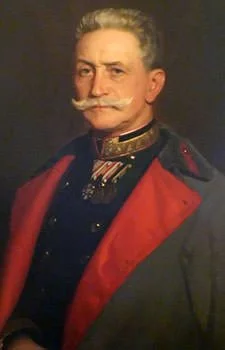
Counted among the men most responsible for the outbreak of the First World War, Conrad von Hotzendorf was the Austrian Chief of Staff and Commander in Chief from 1906 until 1917. Reputed to be diligent, energetic and far sighted; Conrad was a proponent of preventative wars with Serbia and Italy, which he believed were threats to the multi ethnic Austro-Hungarian Empire. On 28th June 1914, Archduke Franz Ferdinand, the presumptive heir of the Austro-Hungarian Empire, was assassinated by a Bosnian Serb named Gavrilo Princip. A friend and associate of the murdered Archduke, Conrad was the first proponent of war against the Kingdom of Serbia in response.
Though widely regarded as an excellent military strategist in his times, Conrad’s reputation suffered over time as Austria-Hungary fumbled at many moments during the war. Austria’s mobilization effort in 1914 was ill managed; and as was its readiness on the Serbian and the Russian fronts. Conrad wildly overestimated what the Austro-Hungarian army could achieve. Consequently, his elaborate plans proved fruitless on the battleground. The Russian Brusilov Offensive of 1916 was a catastrophic defeat for Austria-Hungary, which nearly destroyed their defending army and was responsible for a million and a half casualties. Austria-Hungary did achieve success at Gornice Tarnaw and in Serbia, but in a subordinated command structure to their German allies. Following the death of Emperor Franz Joseph and the ascension of Charles I to the throne in November 1916, Conrad’s powers began to wane leading to his official dismissal as Commander in Chief in March, 1917.
#2 Helmuth von Moltke the Younger
| Lifespan: | May 25, 1848 – June 18, 1916 |
| Nation: | Germany |
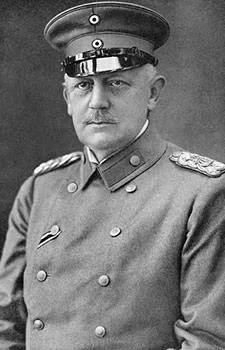
Nephew of the famous Prussian General and his namesake, Helmuth von Moltke the Younger was the Army Chief of Staff of Germany from 1906 to 1914. His predecessor, Alfred Schlieffen, had devised a plan to counter the threat of war on two fronts for Germany. The idea was to defeat France with a swift flanking movement through Belgium and Luxembourg. With this, he hoped to avoid fighting on two fronts by knocking out France before turning to Russia.
As war broke out, Moltke retained the Schlieffen Plan but modified it. The crucial German right wing was weakened to counter the French build-up at Alsace Lorrain, and more than prescribed men were sent on the Russian front. Most controversially, on 28 August, Moltke sent two corps and a cavalry division from the Western Front to reinforce Generals Ludendorff and Hindenburg against Russia. Though Germany achieved an epic victory against Russia at the Battle of Tannenberg, the two units arrived after the battle was over.
Most historians believe that Moltke indecisiveness in implementing the Schlieffen Plan and failure to give clear orders at the Battle of Marne in September 1914, led to the stalemate and ultimate German defeat on the Western Front. Failure at Marne and depreciating health soon forced Moltke out as Commander in Chief, a position that would be filled by Eric von Falkenhayn.
#3 Joseph Joffre
| Lifespan: | January 12, 1852 – January 3, 1931 |
| Nation: | France |
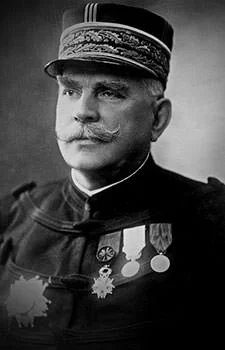
Known for his remarkable calm and dogged determination, Joseph Joffre was made the French Chief of General Staff in 1911 and held the supreme position till late in 1916. Joffre was largely responsible for the deeply flawed Plan XVII, for the invasion of Germany. His blueprint had ignored the likelihood of a German invasion of France through Belgium, and was a major setback in the early days of the war as the French retreated in the Battle of Frontiers.
A few days later, changing his plans he managed to halt the Germans at the Battle of Marne and, short of Paris. The calmness and unflustered nature of Joffre contributed to this victory. Joffre was thus seen as the savior of Paris. However, his critics grew as a stalemate settled on the Western Front and the battles of Verdun and Somme resulted in enormous casualties. In December 1916, he was removed from command and made a Marshal. This reduced him, primarily, to performing ceremonies.
#4 Erich von Falkenhayn
| Lifespan: | September 11, 1861 – April 8, 1922 |
| Nation: | Germany |
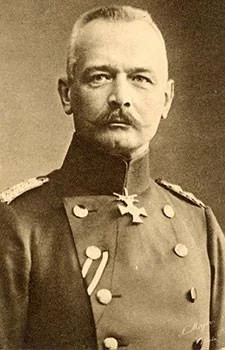
Known to favor strategic defense over offensive operations, Eric von Falkenhayn was appointed as the German Chief of General Staff after the First Battle of Marne in September 1914. In one of his first moves, Falkenhayn ordered a concentrated attack towards the channel ports in the“Race to the Sea“, which saw the development of trench systems that would dominate the Western Front.
Falkenhayn was strong on the belief that war would be decided on the Western Front. Germany had failed in its initial plans of a quick victory. Falkenhayn believed that the answer now lay in a war of attrition. However, the prestige of Generals Hindenburg and Ludendorff meant that the German effort in 1915 was concentrated in the east. After the failure at Ypres, Falkenhayn tasted success in the joint campaign with German allies in the defeat and capture of Serbia in late 1915.
In February 1916, he launched the ill-famed Battle of Verdun with the aim of drawing out the French and bleeding them white. The battle saw unprecedented casualties; and though it did manage to stretch the French, the high kill ratio was not achieved as many German lives were lost too. The failure at Verdun weakened his top position and he was finally replaced by Hindenburg in August 1916. Falkenhayn was transferred to the Transylvanian Front, where while commanding the 9th Army, he oversaw the successful invasion of Romania. In the later stages of the War, Falkenhayn took command of the Central Powers forces (mainly Turkish) in Palestine and later in Lithuania; without much success.
#5 Douglas Haig
| Lifespan: | June 19, 1861 – January 29, 1928 |
| Nation: | Britain |
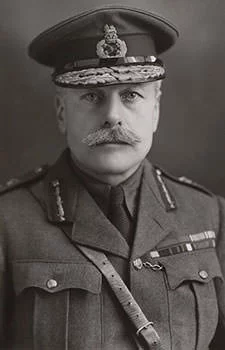
Among the most controversial figures of British army literature, Sir Douglas Haig was seen as an old school general uncomfortable with the developing technologies of WW1. Having held positions of Director of Military Training and Chief of Staff of the Indian Army, Haig was appointed the Commander in Chief of the British Expeditionary Force (BEF) in December 1915. In this capacity, Haig launched two major and much critiqued offensives of the First World War at Somme and Passchendaele.
Somme offensive was launched on July 1, 1916 with an aim of breaking the stalemate on the Western Front and to reduce the pressure on the French troops at Verdun. Passchendaele or Third Ypres was launched a year later in July 1917 with the aim of recapturing the Belgium ports. Though technically victories, the battles did not achieve any breakthrough and the enormous casualty numbers far outweighed the few miles gained on the ground.
His critics analyzed him as arrogant, callous and persistently pursuing objectives that were technically beyond the capabilities of his forces. For his supporters he was the embodiment of the stern and unyielding British nation during World War I. Haig commanded the BEF until the end of the war and thereafter. His war of attrition in 1916 and 1917; and his pursued persistence; was successful in wearing down the enemy. In 1918, under French Chief Ferdinand Foch, Haig oversaw the Allied victory on the Western Front.
#6 Enver Pasha
| Lifespan: | November 22, 1881 – August 4, 1922 |
| Nation: | Ottoman Empire |
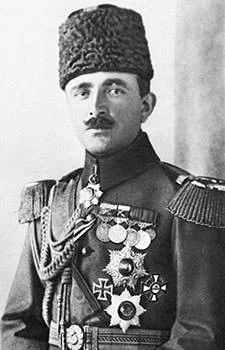
Hero of the Young Turk Revolution of 1908, Enver Pasha was the Ottoman Minister of War and Commander in Chief during WW1. He was among the triumvirate involving Talgat Pasha and Kemal Pasha that dominated the Ottoman Empire. In 1909-11, Enver served as military attaché to Berlin and developed an admiration for German military, which he considered as the best. In 1914, as the new Minister of War, he conducted secret negotiations with both Germany and Russia, and was primarily responsible for the Ottomans joining the Central Powers. His military plans included Pan-Turkic schemes for uniting the Turkic peoples of Russian Central Asia with the Ottoman Turks.
Enver’s plans suffered a major blow in his first expedition at Sarikamish in late 1914, where he lost most of his 3rd Army against the Russians. Enver blamed the local Armenians for the defeat and in the months that followed, he instituted and orchestrated an ethnic cleansing of Armenians known as the Armenian Genocide. This resulted in the systematic removal or death of more than a million Armenians. The act is still be disputed in Turkey, which refuses to term it as genocide.
Battered by defeat, Enver Pasha recovered to foil the Allied expedition to the Dardanelles in 1915-16. The Russian withdrawal from the war in 1917, presented Enver with the opportunity to lead the Ottoman forces that occupied Baku in 1918. An armistice with the Allies soon followed causing Enver to flee in exile to Germany.
#7 Paul von Hindenburg
| Lifespan: | October 2, 1847 – August 2, 1934 |
| Nation: | Germany |
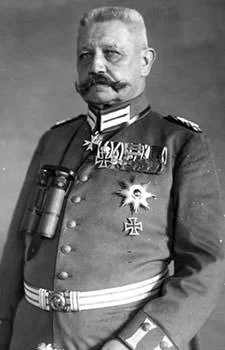
A national hero of the Wartime Empire and Weimar Republic, Paul von Hindenburg was called out of retirement in 1914 to command the German Eastern Front. He had along with him the formidable talents of Erich Ludendorff. A veteran known for his integrity, honor, calm and graciousness; Hindenburg formed an ideal partnership with the younger and mercurial Ludendorff. In 1914, the Germans achieved big success at Tannenberg and then at Masurian Lake where Hindenburg’s troops overcame a much larger Russian army, subsequently leading to his appointed as Commander-in-Chief of the German army in the East. Hindenburg’s popularity kept rising in Germany, soon eclipsing even that of Emperor William II.
Hindenburg was consequently promoted to Field Marshal and he finally became the Army Chief of Staff in August 1916 after Falkenhayn’s failure at Verdun. Appointing Ludendorff his Quartermaster General, Hindenburg stemmed the Allied advance on the western front and consolidated the formidable Hindenburg Line. Romania was overwhelmed in a few months and Russia was pushed out of the war in 1917. However, the unrestricted submarine warfare of Germany saw America joining the war and Germany was thus pressured to enforce a result on the Western Front.
Hindenburg oversaw the final German Spring Offensive of 1918 in France. The costly assault almost succeeded, but a successful Allied counter-offensive, bolstered by the arrival of fresh American troops, finally achieved a breakthrough, forcing a German surrender in November 1918. Hindenburg’s popularity remained intact after the war and he became the President of the Weimar Republic in 1925. He was also responsible for appointing Adolf Hitler the Chancellor in 1933 as he feared a civil war otherwise.
#8 Erich Ludendorff
| Lifespan: | April 9, 1865 – December 20, 1937 |
| Nation: | Germany |
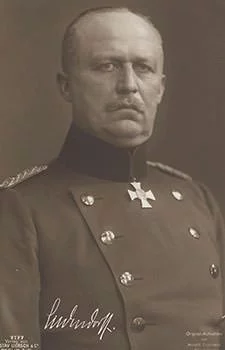
A military man with formidable talents, Erick Ludendorff was a top German military commander in the later stages of WW1. In prewar planning, Ludendorff played a significant part in the revision of the Schlieffen Plan under Moltke. As war broke out in 1914, he was the quartermaster general in the Second Army that captured the “impregnable“ and vital Liege forts in Belgium. Soon after, Ludendorff was sent to East Prussia where he formed his famed partnership with Paul von Hindenburg as his Chief of Staff. With spectacular victories at Tannenberg (1914) and Masurian Lake (1915) on the Eastern Front, Ludendorff stature began to grow in Germany.
In August 1916, as Hindenburg became Chief of Staff of the German Army, Ludendorff was his quartermaster and, along with leading industrialists, the two now controlled power in Germany. Ludendorff was the chief engineer behind the management of the German war effort during this time, with Hindenburg his pliant front man. He drew up the Hindenburg Program to allow Total War and supported the controversial unrestricted submarine warfare that led to the United States joining the war.
In early 1918, Germany was still in a favorable position as Russia’s withdrawal from war in the east freed up many troops for the Western Front. On 21st March 1918, Ludendorff launched the Spring Offensive with the object of smashing the Anglo-French armies and forcing a decision in Europe before the Americans arrived in numbers. The offensive began with promise with the use of Paratrooper tactics that surprised the enemy. However, it eventually faded out. The subsequent Allied counterattack ended the First World War. After the armistice, Ludendorff left Germany for Sweden, only to return and start his brief political career.
#9 Aleksey Brusilov
| Lifespan: | August 19, 1853 – March 17, 1926 |
| Nation: | Russia |
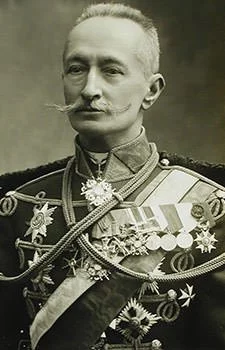
Counted among the most outstanding commanders of WWI, Aleksey Brusilov was a Russian Commander most noted for development of new offensive tactics. A veteran of the Russo-Turkish war (1877-1878), Brusilov first gained fame in WW1 as a commander of the 8th Army, where in August 1914, he initiated a successful offensive against the Austro–Hungarian forces. This campaign in the heart of Galicia in Central Europe, saw Russian troops re-conquer vast areas down to the Carpathian Mountains.
In March 1916, Brusilov was appointed Commander-in-Chief of the South-Western Front. In this capacity, he planned and executed his famous Brusilov Offensive. Aware of the superiority of the enemy forces, he relied on preparation and unconventional tactics like the use of shock, whereby smaller specialized units attacked weak points in the enemy’s trench lines and blew open holes for the rest of the Russian Army to penetrate. The Brusilov Offensive was launched on May 22, 1916. After a powerful thrust of artillery, the Russian army advanced up to 85 km in the first three days. The enemy forces suffered 1,500,000 casualties, the Russians 500,000. Lack of support from other fronts along with a shortage of resources forced Brusilov to discontinue the thrust and switch to defensive actions. Among the most lethal offensives of the First World War, some historians consider it the turning point that tipped the war in the favor of the Allies. As political turmoil gripped Russia in the following months, Brusilov was appointed Supreme Commander-in-Chief of the Russian army for a brief period, and after the October Revolution of 1917, Russia exited the war.
#10 Mustafa Kemal Ataturk
| Lifespan: | May 19, 1881 – November 10, 1938 |
| Nation: | Ottoman Empire |
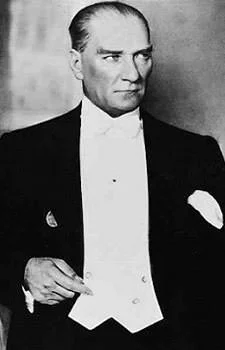
A member of the Young Turks Revolution of 1908 as a young man, Mustafa Kemal Ataturk had fought the Italian-Turkish war of 1911 and the Balkan Wars in 1912-13 before WW1. Ataturk came to prominence as the commander of the 19th Division of the 5th Army. His bravery and strategic thinking helped the Ottoman Empire secure their biggest victory of the First World War, in the Battle of Gallipoli. He was sent to fight Russia, where he won several victories; and then to Syria and Iraq. In July 1917, Ataturk took command of the Seventh Army where he didn’t get along with German General Erick Falkenhayn and resigned soon after seeing the grim situation on the Palestinian Front. Ataturk returned to action again in Syria in August 1918, but the war soon ended for the Ottomans with the Armistice of Mudros in October the same year.
Post-war, in May 1919, Ataturk organized a nationalistic revolution in Anatolia managing to establish a provincial government in Ankara by 1921. The new Turkish parliament engaged in a series of battles with Greek and Armenian forces until Mustafa signed the Treaty of Lausanne on October 29, 1923. This established the Republic of Turkey, and Mustafa Kemal became the country’s first president.
#11 Phillipe Petain
| Lifespan: | April 24, 1856 – July 23, 1951 |
| Nation: | France |
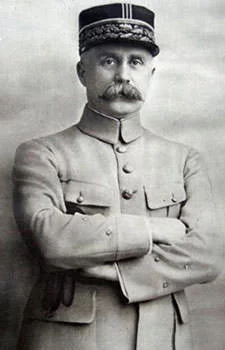
Beginning the war in relative obscurity as a 58–year–old colonel commanding an infantry brigade, Phillipe Petain rose quickly in rank assuming command of the French Second Army in June 1915. A practical man known for his organization skill, Pertain had the ability to rally his troops and favored more integrated offensives rather than the all-out attack popular at the time. In February 1916, Petain was entrusted with the defense of Verdun. An incredible task that would make him into a national hero. He reorganized the front lines and transport systems and though the French suffered huge losses, Petain managed turning a near-hopeless situation into a successful defense. Despite this success, General Robert Nivelle was chosen to replace General Marshal Joseph Joffre as commander of French forces.
In April 1917, the disastrous Nivelle offensive almost broke the back of the French, and Petain was given the French Command a month later. Petain managed to calm the nerves of the French army. He re-established discipline after a series of mutinies by personally explaining his intentions to the soldiers and improving their living conditions. A year later, under Allied Supreme Commander Foch, Petain led the French to the final victorious assault against the Germans. Petain continued in public and political life post war but his legacy as the Lion of Verdun would sadly be tarnished in another war.
#12 Ferdinand Foch
| Lifespan: | October 2, 1851 – March 20, 1929 |
| Nation: | France |
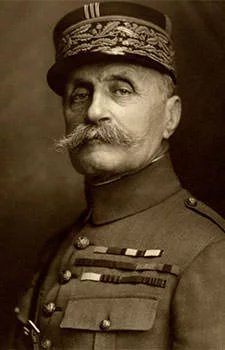
Among the top French military commanders to serve in the First World War, Ferdinand Foch profoundly influenced the development of the French army preceding the war. With the outbreak of WWI, Foch was given command of the Ninth Army. Here, following crucial success at Nancy, Foch helped Joffre secure victory in the First Battle of Marne by blocking the German advance at Gond. Given added responsibility with the Northern Army on the Western Front, Foch was involved in the high casualty battles at Artois (1915) and Somme (1916). Criticized for being reckless and prolonging hopeless offensives, Foch briefly lost ground and was sent to the Italian Front. In May 1917, Foch was appointed chief of the war minister’s general staff, a position that made him adviser to the Allied armies.
In 1918, Foch was recalled as the British and French Armies were in danger of splitting, and American Commander Pershing disagreed on the disposition of United States forces. Foch was made the Supreme commander of the Allied forces and succeeded in shielding off the German Spring Offensive at the Second Battle of Marne. This was followed by his own collective Allied counter offensive which ended in German defeat in November 1918. After the war, Foch received many honors from the Allies nation. Among other things, he was named a British field marshal and marshal of Poland.

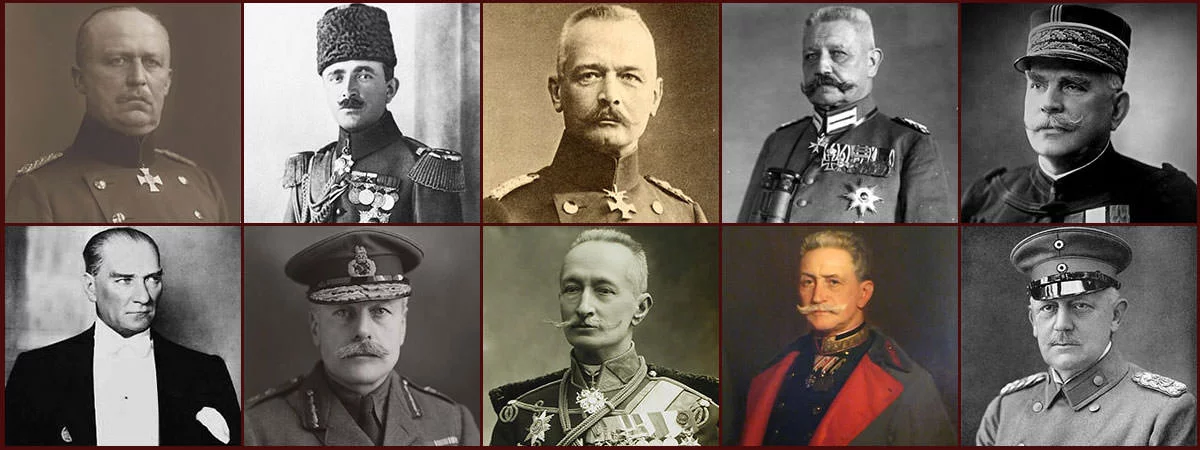
I remember my Grandmother Maude Windling who died years ago, who told me about my Grandfather who died in the war 1 , I never met. He died before I was born. She showed me a picture of him. I Remember you grandpa and I am sure you would have been a wonderful grandfather to me. Thank you for your Love for our Country. I feel in my heart deep sorrow, that war took your life and I never met you my grandfather. War took you from me grandpa. I Love you and God has made us close in Spirit and Truth. Peace Be With You Grandpa, In Jesus Name.
If You Can Help Me Find a Picture please let me know.